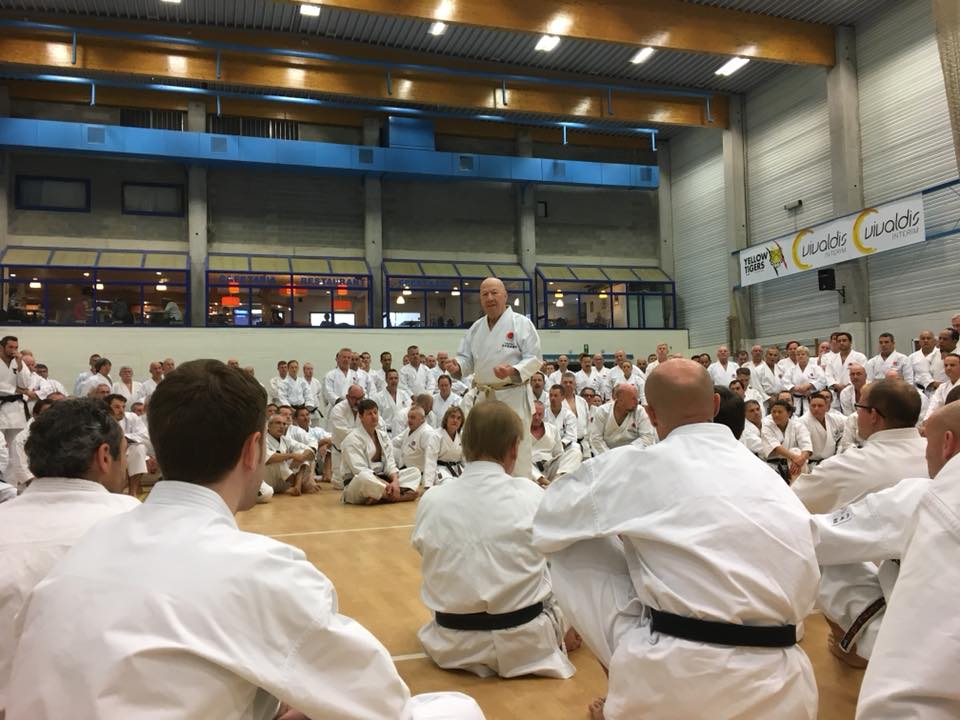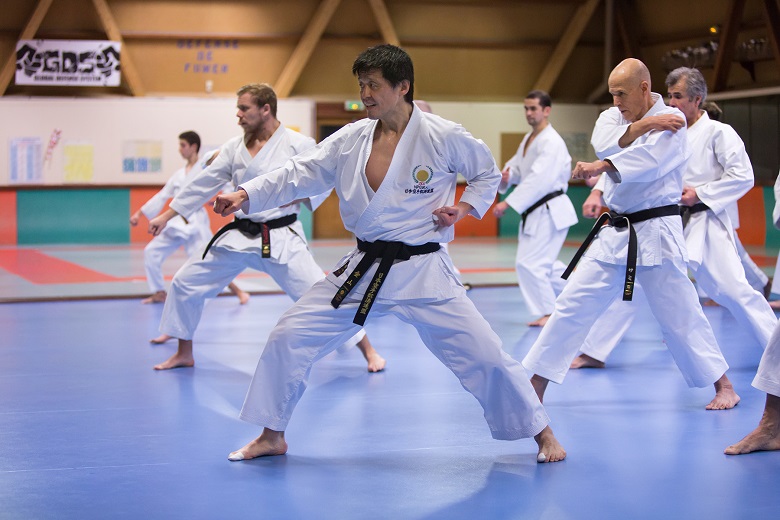
Karate has taught me a lot of things but most importantly is to keep trying and never give up no matter how hard it might seem. Being smaller than everyone and being the weakling of the group was the start of one amazing adventure, one that I wouldn’t change for the world.

Then I started competing, didn’t do too well at first but with some experience, practice and effort I started getting better, eventually becoming Welsh Champion 21 times, British Champion, European Medallist and World Champion. Later on I went though the colour belts and with time I got my black. I guess he was too scared to try anything in case I showed him up in front of all his friends. I never had that fight with the school bully, karate did give me the courage to stand up to him though and that in itself was enough to put an end to his bullying.


After my first class I was hooked, and have been ever since. Then when I was 15 a man named Danny Jones, a brown belt, opened up a karate class in our local community centre, I didn’t hesitate and joined up immediately. This had to remain just a dream for a long time though as we lived out in the hills and I couldn’t get the local karate classes that were in Aberystwyth. I went to secondary school and found that I was a lot smaller than the other kids I liked the idea of being able to defeat the school bully despite being only half his size.
#Sensei karate tv#
Note: at the Charles Fink Karate Dojo, the term shihan is used in formal instances such as opening and closing ceremonies but Charles prefers to be addressed as Sensei.ġ Similar to the term “Boss” in North America.I think always wanted to do karate, I remember seeing something on TV as a kid (maybe I was about 8 or 9 years old) and I was really impressed as to the super human powers of watching someone break boards with a punch and hitting trees with bare hands and feet, I didn’t have a karate class near to me but I would sometimes “play karate” with my friends when we were out in the garden on hot sunny days. You can then use the term that is most meaningful for you. A student who truly feels that someone can be their teacher or mentor and pledges in their heart to become a dedicated disciple of that person finds more depth in the term sensei and in the term shihan and in the relationship they signify.Īsk yourself, then, is the person you are addressing a sensei or a shihan or are they your sensei or your shihan – and try to determine the depth of that relationship. Both titles can be used superficially in accordance with given definitions or social protocol (I was told to call you this) but they can also be spoken with meaning. So, if a shihan is ipso facto a sensei we return to the original question: how should a shihan be addressed? The answer lies in the nature of the relationship between the teacher and the student. A shihan is typically a very well-rounded person. Most shihan also have expertise in other areasīroadly speaking, a shihan’s mastery is seldom limited to one field – most shihan also have expertise in other areas such as music, arts & literature, sports, administration, academics, or other disciplines ending in -do, and are capable of developing strong, long-lasting relationships. A shihan, renshi is therefore a polished, technical expert who displays good character and therefore serves as a role model – both in practice and in disposition. The term renshi speaks to the character of the person ren (錬) means refined, trained, and polished and shi (士) refers to a man/woman, gentleman/lady, or samurai of high status. A shihan has command of the material and can apply that knowledge to innovate and lead. Shihan is an honorific title for expert, master, or senior martial arts instructors and is created using two Japanese characters: shi (師) meaning example or model and han (範) meaning master or exemplary practitioner. The Chinese have a saying: “If you meet a teacher on the road, forget what you are doing and follow him.” This speaks to the importance Eastern culture places on expert pedagogues. In Japan, the term “sensei” is sometimes used loosely 1 to address anyone who is skilled in the development transmission of knowledge but its significance should not be watered down. The term suggests that since someone already has travelled down the proverbial path, that person is well positioned to serve as a guide to those who follow. Sen (先) sei (生) literally translates as “one who has gone before” but figuratively (and practically), sensei means teacher.

To answer that, let’s first look at what these terms mean:


 0 kommentar(er)
0 kommentar(er)
